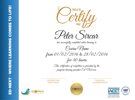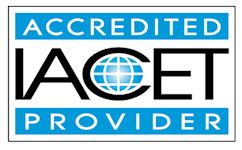Creativity Training for Writers
Ed-Next
Summary
- Exam(s) / assessment(s) is included in price
Overview
Have you ever faced writer’s block? Transforming your visions onto paper doesn’t have to be difficult. Our Creativity Training for Writers course gives you the knowledge and tools to help unleash your creative side. We will discuss ways for breaking through writer’s block and methods for jumpstarting creativity. The basics of writing essays, memoirs, short stories and books and ways to get your name out there to publishers, magazines, and writer’s groups are covered. Whether you are hoping to write a short story or a novel, Creativity Training for Writers will help you live the creative life you crave through the medium of writing.
Course media
Description
After completing this course, you should be able to:
- Identify writer’s block and how to overcome it
- Recognize steps for writing memoirs, short stories and essays
- List ways to find an audience for your topic
- Recall tips for channeling your creative side, avoiding procrastination and becoming focused
Creativity Training for Writers Module 1
Working through Writer’s Block
Writer’s block refers to something “contracted” by writers who cannot write a single creative word. If a writer cannot overcome this, they tend to lose confidence in their abilities and give up on writing entirely. This week will review reasons why a writer might get writer’s block and tips for overcoming it. We discuss problems that keep you from creating, such as your own attitude and those of others. In order to fully create, you must unleash your passion for writing. This module discusses how to fully embrace your creative side to get your writing flowing.
- What is Writer’s Block?
- Diaries & Journals as Anti-Writer’s Block Tools
- Other Tips for Breaking Writer’s Block
- Problems That Prevent You from Creating
- How to Give Yourself Permission to Create
Creativity Training for Writers Module 2
Get in Touch with Your Creativity
This week we discuss methods for jumpstarting your creativity, such as practicing writing, finding a comfortable location to write and scheduling a dedicated timeframe for writing. Procrastination is a huge reason why creativity suffers. Avoiding procrastination is one of the best things you can do for yourself as a writer. In this module we also look at different tips for turning the first draft of your personal essay into a good piece of literature.
- Methods for Jumpstarting Your Creativity
- Avoiding Procrastination
- Creative Focus
- Types of Personal Essays
- General Tips for Writing Essays
Creativity Training for Writers Module 3
Memoirs and Short Stories
Whether you want to write a memoir, autobiography or a short story, this week will provide great insight into the basic features of each and the steps needed to achieve writing them. Whether you choose to write an autobiography or a memoir depends on the scope of what you want to say and the amount of time you want to write about. This module also introduces you to different parts of a short story and how it compares to a novel.
- Memoir vs. Autobiography
- How to Tackle a Memoir
- Ideas for Memoir Topics
- Short Stories vs. Novels
- Steps for Writing a Short Story
Creativity Training for Writers Module 4
Writing a Book and Finding an Audience
Once you’ve experimented with writing short stories, the next natural move for your creative talents is to write an entire novel. This week reviews the parts of a novel, such as the characters, plot and setting. As you wrap up the final touches of your novel or nonfiction book, you need to make some decisions concerning where and how you plan to publish your work. We will cover different periodicals, magazines and journals and we will also explore steps for self-publication.
- The Parts of a Novel
- The Nonfiction Book
- Finalizing Your Book
- Writer’s Groups
- Magazines, Journals & other Periodicals
Ed4Online has been approved as an Accredited Provider by the International Association for Continuing Education and Training (IACET). In obtaining this accreditation, Ed4Online has demonstrated that it complies with the ANSI/IACET Standard which is recognized internationally as a standard of good practice. As a result of the Accredited Provider status, Ed4Online is authorized to offer IACET CEUs for courses and programs that qualify under the ANSI/IACET Standard.
You will earn 2.4 IACET continuing education credits by completing this Ed4Online course. This course is 24 contact hours which equals 2.4 CEUs based on the IACET standard. The International Association of Continuing Education and Training is the highest quality worldwide standard for Continuing Education Unit.
The Continuing Education Unit (CEU) was created by IACET as a measurement of continuing education. One (1) IACET CEU is equal to ten (10) contact hours of participation in an organized continuing education experience under responsible sponsorship, capable direction, and qualified instruction. Under IACET's care, the IACET CEU has evolved from a quantitative measure to a hallmark of quality training and instruction
Who is this course for?
Anyone interested in writing and publishing
Requirements
No prior qualification required
Career path
Application of principles learnt in this course
Reviews
Currently there are no reviews for this course. Be the first to leave a review.
Legal information
This course is advertised on reed.co.uk by the Course Provider, whose terms and conditions apply. Purchases are made directly from the Course Provider, and as such, content and materials are supplied by the Course Provider directly. Reed is acting as agent and not reseller in relation to this course. Reed's only responsibility is to facilitate your payment for the course. It is your responsibility to review and agree to the Course Provider's terms and conditions and satisfy yourself as to the suitability of the course you intend to purchase. Reed will not have any responsibility for the content of the course and/or associated materials.




